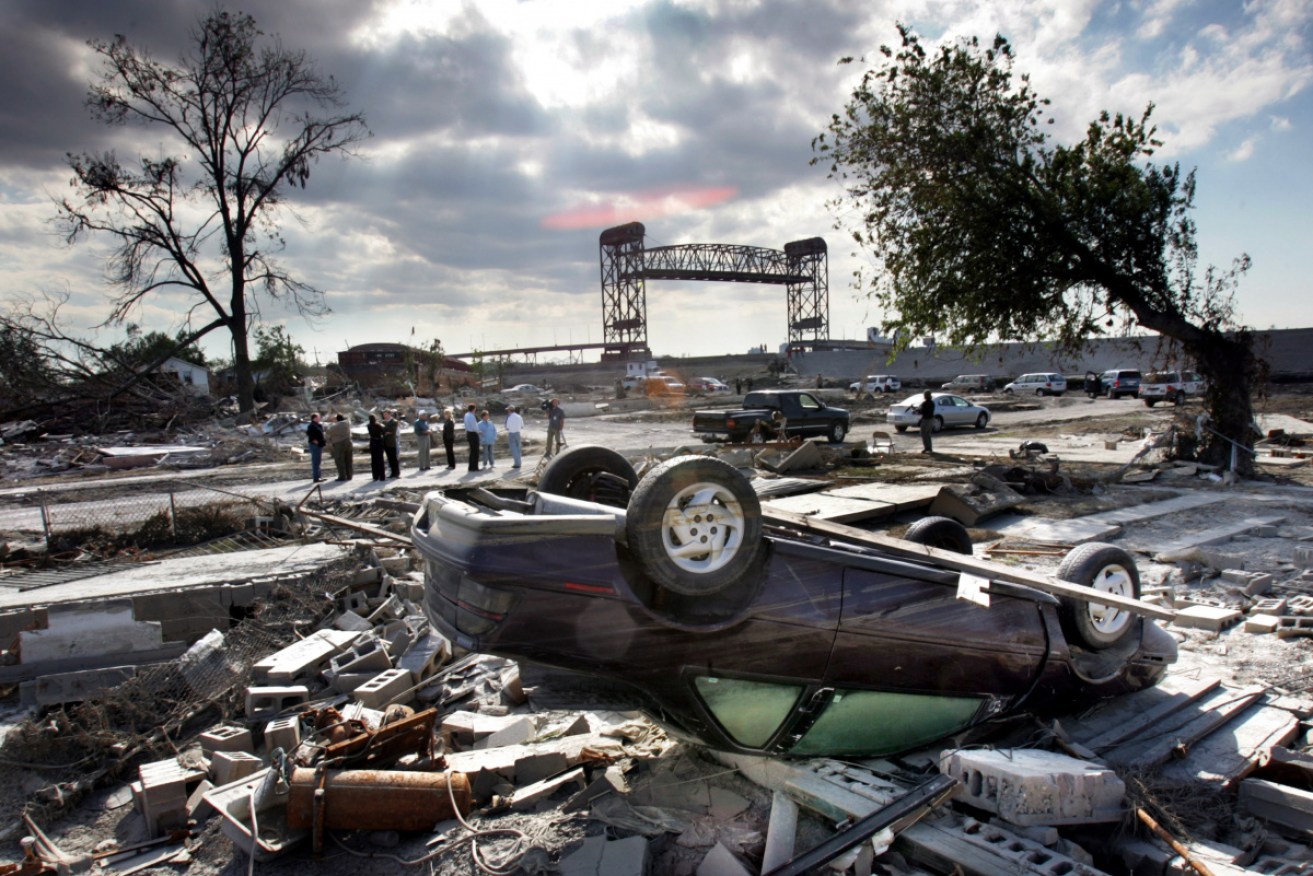World Meteorological Organisation says weather disasters have risen fivefold in 50 years

A UN agency says weather disasters have increased fivefold over the past 50 years. Photo: AP
The number of disasters, such as floods and heatwaves, driven by climate change have increased fivefold over the past 50 years, killing more than two million people and costing $US3.64 trillion ($4.97 trillion) in total losses, a UN agency says.
The World Meteorological Organisation (WMO) says its “Atlas” is the most comprehensive review of mortality and economic losses from weather, water and climate extremes ever produced.
It surveys some 11,000 disasters occurring between 1979 and 2019, including major catastrophes such as Ethiopia’s 1983 drought, which was the single most fatal event with 300,000 deaths, and Hurricane Katrina in 2005 that was the most costly, with losses of $US163.61 billion.
The report showed an accelerating trend, with the number of disasters increasing nearly fivefold from the 1970s to the most recent decade, adding to signs that extreme weather events are becoming more frequent due to global warming.
https://twitter.com/WMO/status/1432961422691028992
The WMO attributed the growing frequency to both climate change and improved disaster reporting.
Costs from the events also surged from $US175.4 billion in the 1970s to $US1.38 trillion in the 2010s when storms such as Harvey, Maria and Irma ripped through the United States.
“Economic losses are mounting as exposure increases,” said WMO Secretary-General Petteri Taalas in a foreword.
But while hazards became more costly and frequent, the annual death toll has fallen from more than 50,000 in the 1970s to about 18,000 in the 2010s, suggesting that better planning was paying off.
“Improved multi-hazard early warning systems have led to a significant reduction in mortality,” Mr Taalas added.
The WMO hopes the report, which gives a detailed regional breakdown, will be used to help governments develop policies to better protect people.
More than 91 per cent of the two million deaths occurred in developing countries, the report said, noting that only half of the WMO’s 193 members have multi-hazard early warning systems.
It also said that “severe gaps” in weather observations, especially in Africa, were undermining the accuracy of early warning systems.
-Reuters








